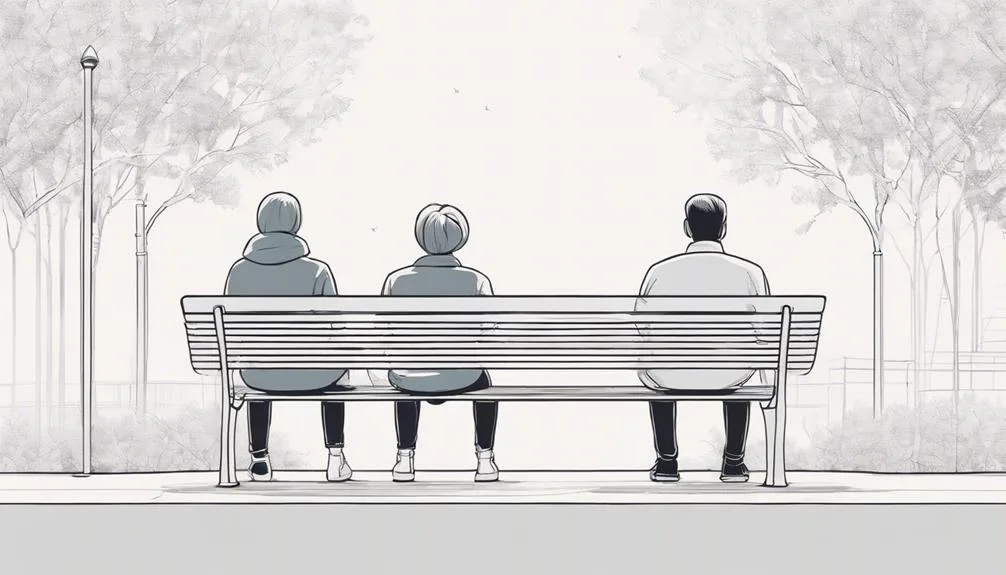Breaking up is tough, but it can be done kindly and respectfully. This guide offers five effective ways to end a relationship smoothly.
We’ll cover how to communicate clearly, be honest, and show gratitude for the time spent together.
These approaches aim to make the breakup process less painful for both people involved. If you’re looking for a way to part ways without causing harm, these tips can help.
Key Takeaways
- Communicate openly and honestly, avoiding blame to foster mutual understanding.
- Choose a neutral, comfortable setting for the breakup conversation.
- Highlight positive aspects and express gratitude for shared experiences.
- Set clear boundaries for post-breakup interactions to respect personal spaces.
Communicate Clearly and Honestly

Beginning with open and honest communication is essential when you’re aiming to end a relationship peacefully. It’s important to express your feelings clearly without leaving room for misinterpretation. Avoid accusations as they can lead to defensive responses and escalate tensions. Instead, focus on sharing your own experiences and emotions. This approach encourages a more receptive and understanding atmosphere.
Emotional preparedness is key; you’ll need to be ready for any reaction, whether it’s sadness, anger, or confusion. Ensuring you’re emotionally equipped enables you to handle the conversation with empathy and care.
Choose an Appropriate Setting

After ensuring clear and honest communication, it’s equally important to choose an appropriate setting for the conversation. Opting for public places can offer a neutral ground, reducing the intensity of emotions. However, it’s essential to select a spot that’s not too crowded, ensuring both privacy and comfort.
The time of day you choose to have this conversation also plays a significant role. Avoid moments that either of you’re rushed or stressed. A calm, unhurried time allows for a more thoughtful exchange.
Express Gratitude for the Relationship

Throughout your conversation, expressing gratitude for the time you’ve shared together, highlighting the positive aspects of your relationship is vital. Remembering the moments that fueled your personal growth and acknowledging the mutual respect you’ve cultivated can soften the blow. It’s not just about ending things; it’s about honoring the journey you’ve been on together.
Set Boundaries for Future Interactions
Setting clear boundaries for future interactions is important to make sure both individuals can move forward with comfort and respect. It’s vital to address how you’ll handle situations involving social media and mutual friends, as these can often lead to discomfort if not discussed.
Here’s a quick guide to help you get started:
| Boundary Type | Suggestions |
|---|---|
| Social Media | Limit or restrict interactions to avoid discomfort. |
| Mutual Friends | Agree on how to navigate gatherings to prevent awkwardness. |
| Communication | Decide on the preferred method and frequency of contact. |
| Personal Spaces | Respect each other’s favorite spots and hangouts by giving space. |
| Emotional Boundaries | Be clear about what emotional support, if any, can be offered. |
Offer and Seek Closure

Seeking and offering closure is important for both parties to emotionally move on from the relationship. It’s a crucial step towards mutual healing, allowing both of you to understand and accept the end of your journey together. By ensuring you’re both on the same page, you pave the way for emotional support and a healthier recovery.
Consider these actions to facilitate closure:
- Communicate openly about your feelings and the reasons behind the breakup.
- Listen actively to each other’s perspectives, without judgment or interruption.
- Express gratitude for the time spent together and the growth experienced.
Conclusion
Navigating the end of a relationship with honesty, clarity, and gratitude not only respects the journey shared but also fosters personal growth for the future. Choosing an appropriate setting and establishing boundaries can smooth the transition, allowing both parties to seek closure and move forward.
As we reflect on these steps, one wonders, what does this thoughtful approach tell us about the nature of endings and beginnings in our lives? This method, rooted in respect and clear communication, underscores the importance of handling sensitive moments with care, ensuring that parting ways can be a step toward healing and new opportunities.

